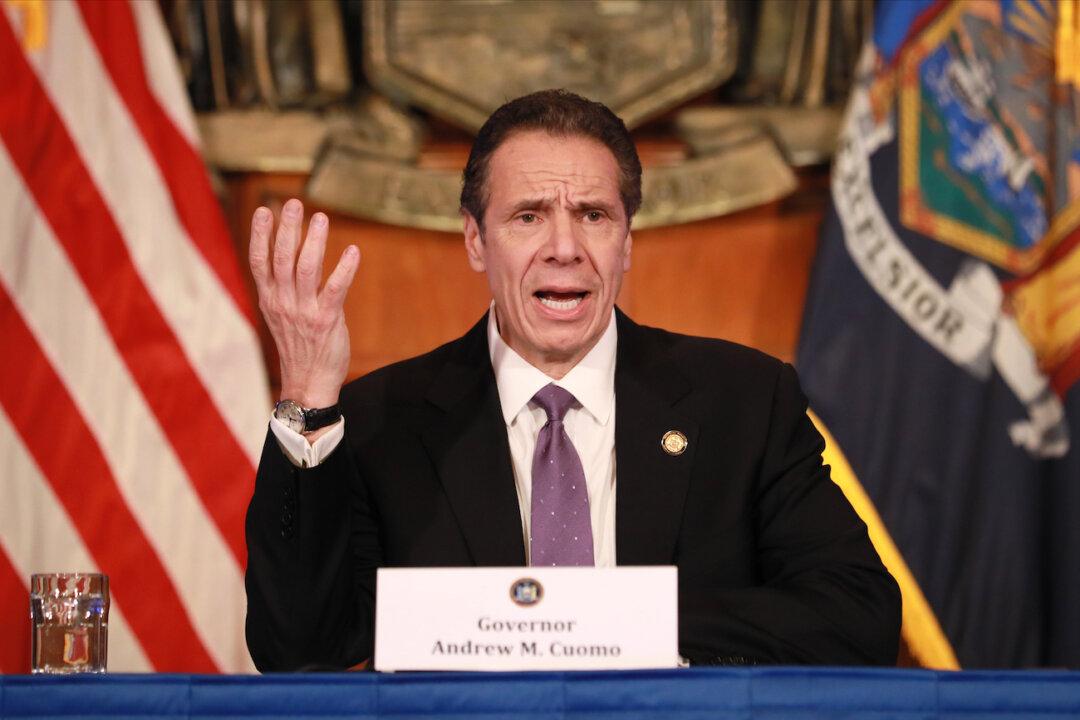New York Governor Andrew Cuomo on Tuesday blamed international and domestic agencies, as well as legacy media, for what he suggested was a failure to acknowledge and respond to the threat posed by the COVID-19 outbreak in China.
Cuomo, at a briefing Tuesday in Syracuse, lamented the apparent negligence of authorities to recognize and raise the alarm in a timely fashion in regards to the outbreak of the CCP (Chinese Communist Party) virus, the novel coronavirus that causes COVID-19.





